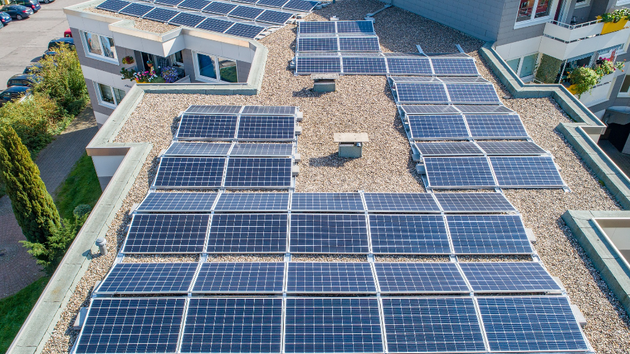Are we going to import wheat and meat upon admission to the EU? - Future of Serbia's agrarian sector depends on agricultural census
 Monday, 20.08.2012.
Monday, 20.08.2012.
 15:02
15:02
After more than a half a century, Serbia will conduct an agricultural census this autumn. All the information obtained in this process will be used to create strategies for developing the agrarian sector, while the collected data will be particularly significant to agricultural producers because they will serve as a basis for them to improve their production plans and apply for incentives from national and European funds.
It is very important for the Serbian agriculture that the data collected during the census be as accurate as possible because it is very difficult to change quotas for the EU once assigned.
- All the things that farmers hide during the census will return to them as a boomerang when they try to use the funds made available by the EU in the future. The census will give us an insight into the situation in agriculture on the national level and provide us with a basis for the quotas for Serbia to be negotiated in the future - Dr. Miladin Sevarlic, president of the Association of Agrarian Economists of Serbia and a regular professor at the Faculty of Agriculture in Belgrade, says in a talk with eKapija.
Our interlocutor cites an example of Romania, which had to reduce its livestock because it failed to get incentives from the EU due to inaccurate statistics and, thus, remained uncompetitive even in its own market.
(Miladin Sevarlic)
- Based on the statistics, Romania was assigned a quota of 5 billion liters of milk, that is, a million cows producing 5,000 liters of milk each, meaning that it was able to apply for EU funds within that framework. There was no way for that country to compete with the Netherlands, which produces 8,000 liters of milk per cow. That is why Romania had to reduce its livestock because they were able to count on incentives for a million heads of cattle only, as that was the country's limit - Sevarlic explains.
The president of the Association of Agrarian Economists of Serbia points out that the statistics is also necessary for the analysis of the situation in this sector, creation of development projections and the introduction of appopriate measures.
Census after a half a century
The last comprehensive agricultural census in Serbia was conducted in 1960.
Dragana Markovic, head of the Department of Agricultural and Forestry Statistics within the Republic Statistics Institute (RSI), says that the World Programme for the Census of Agriculture (WCA) recommends that all countries conduct their agricultural census in the period between 2006 and 2015 in accordance with their specific characteristics.
- The census of agriculture represents the best possible way to collect comprehensive and precise information to serve as a basis for making future decisions related to agriculture - Markovic explains.
Given that we've been guessing for decades how much agricultural land and how many heads of cattle, fruit trees and grapevines Serbia has at its disposal, all these dilemmas will be resolved with the census of agriculture, which will be conducted between October 1st and December 15th.
According to the estimates done by the Council of the Census of Agriculture, there are 4.2 million hectares of arable land and 450,000 registered farms out of the total of about 700,000 family farms in Serbia.
The Council points out that it can be expected that farmers refuse to give information to census takers out of the fear of new taxes. Also, there are many workers-peasants who did not report the size of their land in last year's census of population. Therefore, census takers may skip them this autumn, which is why it is necessary to compare the data with those of the Tax Administration and the Administration for Agrarian Payments in order to at least expand the database of registered agricultural farms.
The president of the Association of Agrarian Economists stresses that it is important to launch a positive campaign on the occasion of the forthcoming census.
- The media, TV stations in particular, should elaborate more on the significance and purpose of the census. Presidents of local communities, associations of agricultural producers, cooperatives and non-government organizations focused on rural development should all join the promotion of this census.
(Dragana Markovic)
It is important to choose adequate census takers
This job, which will help the state to get a complete picture of the agrarian sector, will be done by about 6,000 census takers appointed by the Republic Statistics Institute (RSI).
People at RSI say that given that this is a specialized and demanding census, they will pay the most attention to the competence of candidates and their knowledge of the territory covered by the census when selecting census takers.
Miladin Sevarlic, president of the Association of Agrarian Economists, underlines that the census takers should be people who know agriculture very well.
- A special attention should be paid to census takers because it is most important that they are experts for agriculture.
Since Europe is going to set national production quotas for Serbia on the basis of census results, a poorly conducted census may make Serbia a country that will permanently import certain agricultural products - particularly livestock ones.
Suzana Obradovic
 Ministarstvo poljoprivrede, šumarstva i vodoprivrede Republike Srbije
Ministarstvo poljoprivrede, šumarstva i vodoprivrede Republike Srbije
 RepubliÄŤki zavod za statistiku
RepubliÄŤki zavod za statistiku
 Društvo agrarnih ekonomista Srbije
Društvo agrarnih ekonomista Srbije
 Poljoprivredni fakultet Beograd
Poljoprivredni fakultet Beograd
 Poreska uprava Srbije
Poreska uprava Srbije
 Uprava za agrarna plaćanja Republika Srbija
Uprava za agrarna plaćanja Republika Srbija
Most Important News
06.04.2024. | Agriculture
Preconditions for Placement of Fresh Blueberries and Dried Plums in Chinese Market Secured

16.04.2024. | News
Jovan Ciric, Leasing Director Retail MPC Properties – MPC Echo symbolizes our desire for good ideas and innovative endeavors to spread freely and bring about positive changes

16.04.2024. | News
10.04.2024. | Finance, IT, Telecommunications, Tourism, Sports, Culture
Creative Industry – What This Serbian Economy Sector Worth EUR 2 Billion Encompasses

10.04.2024. | Finance, IT, Telecommunications, Tourism, Sports, Culture
18.04.2024. | Transport
Jovanovic: Purchase of Siemens trams produced in Kragujevac for GSP Beograd should be considered

18.04.2024. | Transport
16.04.2024. | News
Economy Fair in Mostar opens – 26 companies from Serbia exhibiting

16.04.2024. | News
17.04.2024. | Industry, Construction, Transport, Finance
Feka Automotive to build energy-efficient production facility – EBRD approves EUR 15 million

17.04.2024. | Industry, Construction, Transport, Finance


 Izdanje Srbija
Izdanje Srbija Serbische Ausgabe
Serbische Ausgabe Izdanje BiH
Izdanje BiH Izdanje Crna Gora
Izdanje Crna Gora


 News
News






